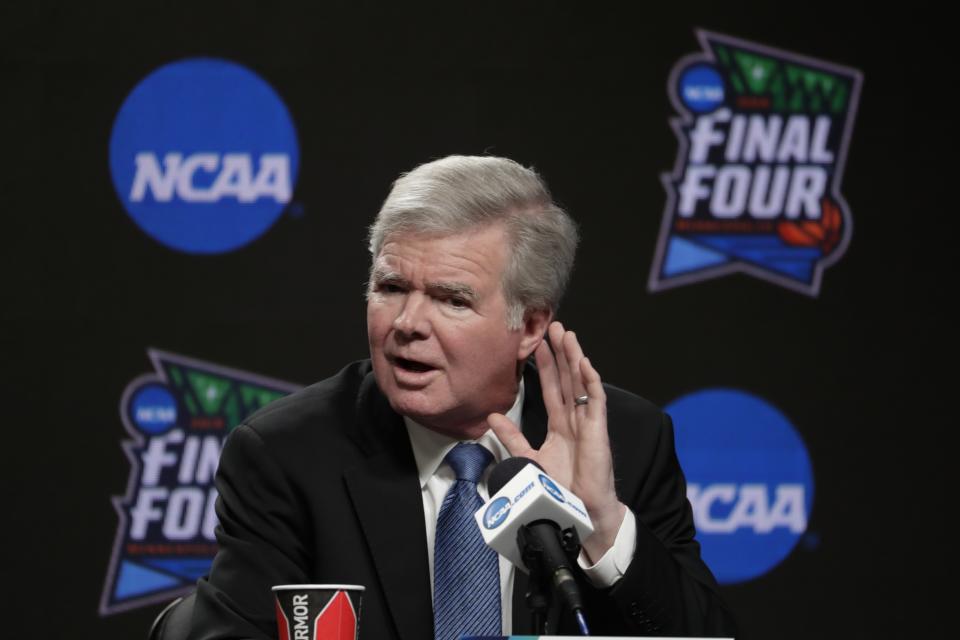Poll: 60% of Americans support college athletes getting paid endorsements
California Gov. Gavin Newsom made history last week when he signed into law SB 206, the Fair Pay to Play Act, which will allow student athletes in the state to get paid for the use of their name or likeness when it goes into effect in 2023. The NCAA vehemently opposed the bill.
But California’s move may not be as controversial with the American public as you’d think.
The latest Seton Hall Sports Poll, conducted by the Sharkey Institute at Seton Hall University, finds that 60% of people surveyed say student athletes should be allowed to profit from the use of their name, likeness, or image, while 32% said no, and 8% were unsure. The responses fall along familiar age demographics: 80% of people between ages 18 and 29 support the paid endorsements, but only 50% of people above age 60 do.
Meanwhile, 59% of people say the governing body that should oversee the issue is the NCAA, while only 27% say it should be up to state governments.
Seton Hall surveyed 714 U.S. adults by phone across the country from April 16 to April 19, with a margin of error of 3.8%.
Interestingly, when the Seton Hall Sports Poll asked people in 2017 whether scholarships are sufficient compensation for college athletes, 60% said yes—the same number that now say college athletes deserve to be free to sign endorsement deals.
Those two data points may appear to contradict each other, but it is certainly possible to believe both that a scholarship is enough pay for a student athlete and that those athletes should be allowed to sign endorsements if they can get them. The 60% number in 2017 who said a scholarship is enough pay was also down from 71% in 2013 when asked the same question.

The survey results are telling for the future of college athletics. The NCAA has fought back time and again against any proposals that college athletes earn compensation of any kind under its definition of “amateurism.” Critics have retorted that Division I schools make millions on their men’s football and basketball programs off the backs of those same “amateur” athletes, who only get paid back in tuition.
NCAA president Mark Emmert has slammed California’s bill as an “existential threat” to college sports and a “new form of professionalism.”
To be clear, the idea of paying college athletes a salary or stipend is a different conversation from California’s bill to allow athletes to sign paid endorsement deals.
Gov. Newsom signed SB206 live on the LeBron James HBO show “The Shop” (James has been an outspoken supporter of paying college athletes) and said on the show that the move is “going to initiate dozens of other states to introduce similar legislation, and it’s going to change college sports for the better.”
It would appear, based on this particular survey, that more than half of Americans agree.
—
Daniel Roberts is the sports business writer at Yahoo Finance. Follow him on Twitter at @readDanwrite.
Read more:
David Robinson: NCAA ‘shouldn’t be the enemy of the athlete’
College basketball commission to NBA: Don't let freshmen go pro
The first college football video game since 2013 ‘could be a huge recruiting tool’
Why the NCAA bribery probe ‘feels like a tipping point’ in college sports
What March Madness sponsors are saying about NCAA bribery probe

 Yahoo Finance
Yahoo Finance 
